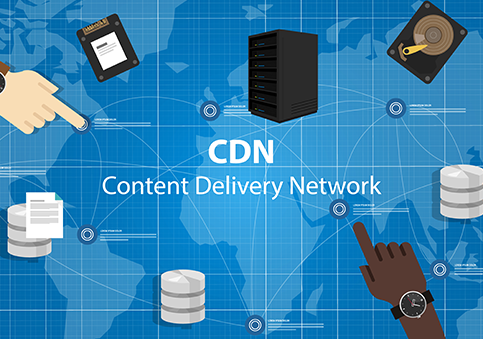What does CDN?

Any creative and business leader who’s determined to build a strong impact in the digital space should look for meaningful ways to consistently deliver only premium content. It’s no secret that the world wide web now houses a ton of businesses. In other words, the internet has grown to become a valid money-making avenue for thousands of entrepreneurs. Several businessmen and women don’t even have physical offices and stores anymore. This is why a CDN is crucial for websites. What does CDN offer site owners, you ask?
A whole lot. This article discusses all those and defines what a CDN is, to start with.
What does CDN do and what is it?
To begin, understand that websites that encounter heavy loads and high traffic will most probably crash when not equipped with the right gear. Anyone who relies on the internet and their site running knows how this can be a nightmare. A Content Delivery Network (CDN) remedies this because that’s what they’re designed to fix in the first place. CDNs are a group of servers placed in various parts of the world to help transmit site content much more efficiently.
If the site you own and run is hosted by a web host that’s based in Sydney, you can bet that your English and Polish users won’t enjoy the same speed those from Melbourne will. A CDN bridges the gap by making sure servers near your global audience can quickly relay whatever content you have on your site. To better appreciate a CDN, it’s also important to know that web hosts aren’t designed to cater to thousands of site visitors all at once. They simply make sure your digital home is accessible, but they don’t guarantee its smoothness. Often, that’s on your end.
There are about a few, very solid reasons why a CDN is crucial to your website. The list is as follows:
Reliability
A CDN can cache sites, making sure only the updated version reaches your users. This helps your website a lot in that your web host isn’t strained and wrung to perform even when there’s a huge influx of users on your site. to add, because your site is made available in many parts of the globe—or at least the parts you choose—it evenly distributes your data, making sure your site isn’t prone to crash anytime soon. This benefits those who run an e-commerce business and news sites the most.
Speed
We live in an era where the things we need come to us whenever we need them. Whether food or online dating, our selections are vast and at the tip of our fingertips. That being said, not everyone can afford to wait. CDNs help shorten web page wait time because the content your visitors request for aren’t physically distant. Their edge server—the server nearest them—easily provides what they request for, be it a picture they want to enlarge or a blog post they want to skim.
So if you run your site from California, you can be confident that visitors from Jakarta, Norway, Japan, or wherever your primary foreign audience is can consume your media, in the same manner, your L.A. and San Francisco users do.
Improved Conversion Rates
Ultimately, this benefit is an aftermath of the first two CDN advantages. More often than not, reduced latency leads to an influx of website conversions. From newsletter signups to product sales, and from app downloads to account signups.
How are these related? Basic human psychology. When users get what they want in a matter of seconds, you start fueling and satisfying their interests while it’s at its peak. For instance, when you have an engaging picture of a wristwatch that’s on sale on your site, and the photos load quickly and vividly, a user who’s most likely shopping for a watch online will have higher chances of purchasing from you immediately.
Customized experiences
If you’re not aware of how A/B testing in digital marketing works, it’s when more than one variant is delivered randomly to users to examine which web page with the same message brings in more sales or reach a conversion target. The variant that arrives with the most ROI then becomes the new norm after an established time.
CDNs can make this a reality, too. Depending on what and how you set up your web pages, you can localize content and come up with a ton of variants based on geolocation. You can also present specific media and content to users based on wherever they are. A prime example of this is Netflix.
Interested in seeing what BelugaCDN can do for your company? Get a free trial and find out for yourself.
Power-up your Content Delivery
30 Day Free Trial Cancel Anytime